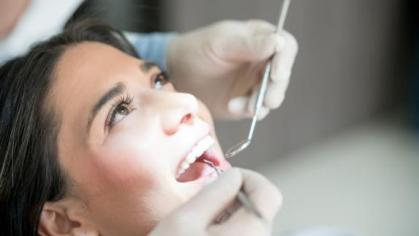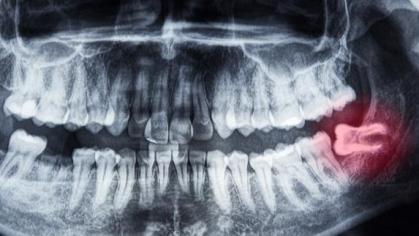Different Types of Oral Lesions
If you’ve noticed sore spots and irritation inside your mouth, you may be experiencing oral lesions. People can be affected by these sores for many reasons. Sometimes, they are related to a larger medical condition that requires treatment. Because of this, it’s important to understand the various types of oral lesions and their symptoms so you can seek dental care when needed. Here, Rutgers Health University Dental Associates takes a look at some of the most common oral lesions our patients are affected by.
Canker Sores
Known as one of the most common lesions, canker sores are actually a type of ulcer. They can be caused because of a variety of reasons, including:
- Mouth injuries: Minor trauma to the mouth caused by an accidental bite, hard brushing, or playing sports can cause a canker sore to form.
- Sensitivity to foods: Foods high in acidity, like pineapples and lemons, as well as other trigger foods, like chocolate and coffee, commonly cause canker sores in people sensitive to them.
- Emotional stress: Going through a difficult time or not getting enough rest can cause these lesions to appear in your mouth.
- Toothpaste or mouth rinses: Dental products that contain sodium lauryl sulfate can cause canker sores in users who are sensitive to this substance.
The symptoms of canker sores can span a wide range of severity. Minor sores last only a couple of weeks and can make it painful to eat or drink. Canker sores that last longer than six weeks can cause scarring where the ulcer formed.
Gingivostomatitis
This infection of the mouth and gums creates oral lesions that may look like canker sores. While these lesions will also appear on the gums or inside the cheeks, they will be gray or yellow on the outside. Gingivostomatitis usually affects children, who may start drooling or refuse to eat because of the pain that these sores cause. Other symptoms include fever, swollen lymph nodes, and bleeding gums. Since it can be hard for children to convey their symptoms to their parents, if you notice any of these in your children, take them to a dentist as soon as possible. This infection can be caused The herpes simplex virus type 1 (HSV-1) This virus could also cause cold sores.
Herpangina and hand foot mouth disease
These conditions present with oral ulceration and caused by Coxsackie virus infection. This virus is usually transmitted through respiratory secretions or touching a surface contaminated by feces. This infection affects mostly children.
Oral Thrush
Thrush is caused by the growth of a fungus inside the lining of your mouth. It is accompanied by creamy white residues that can cover your tongue and the inside of your cheeks. Along with these lesions, you may experience a burning sensation that can make it difficult to eat or swallow and create a cottony feeling in your mouth. Thrush usually impacts people with weakened immune systems, including children and the elderly. Improper denture hygiene or continuous wearing of dentures can also increase the risk of fungal infection.
Seek Oral Lesion Treatment
If you’re experiencing any of the symptoms above, it’s important to seek oral lesion treatment right away. Sometimes, these conditions signal a more serious issue and your dentist can be your first line of defense against related health concerns. To get treatment for oral lesions, contact Rutgers Health University Dental Associates in New Brunswick or Newark to schedule an appointment today



